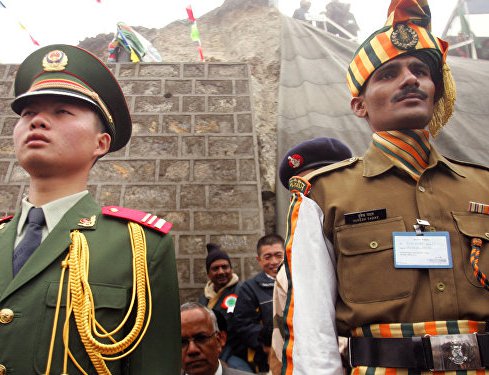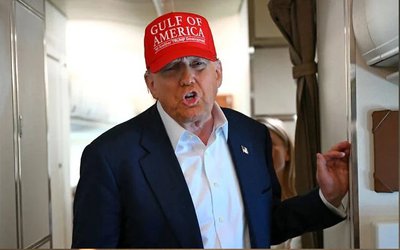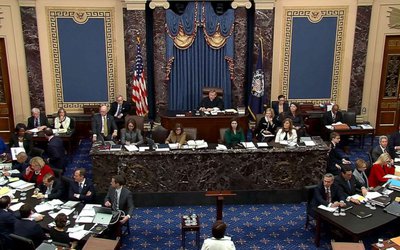
Retired Lt. General of Indian Army DS Hooda writes if India backs down in its support to Bhutan, its influence and standing in the region will be seriously weakened.
In his article published in News 18 online, Lt General Hooda said as the India-China standoff in Dokalam Plateau nears three weeks, there does not appear to be an immediate solution in sight. No doubt, diplomats in South Block, and their counterparts in Beijing, would be working overtime, but the shrill rhetoric from the official Chinese media will only make their job much more difficult.
He argued that the current Chinese approach is in sharp contrast to how it has handled similar occurrences in the past. “The Demchok incident of April 2013 was extensively covered in India but there was no mention at all of the face off in the Chinese media. In fact the first official reaction appeared only a year later in July 2014 when the Chinese military spokesperson acknowledged that “last year there was some incident in the border region. All these issues have been properly resolved through negotiations,” Genral Hood writes.
General Hooda said that the September 2014 intrusion in Chumar was clearly a deliberate and planned action as hundreds of Peoples Liberation Army (PLA) soldiers crossed the Line of Actual Control (LAC).
“It was an attempt to construct a road and pressurise India in an area where both sides had differing perceptions of the border. The timing coincided with the Chinese President Xi Jinping’s visit to India and, equally pertinent, the Kashmir floods of 2014 which had cut off the main Srinagar-Leh highway into Ladakh,” writes General.
“Even as hundreds of troops faced each other, there was no coverage in Chinese media. The first official statement came after one week when the Chinese spokesperson said, “China and India attach great importance to the incident...With immediate and effective communication, this has been effectively controlled and managed.” He went on to say, “China hopes to continue to work with the Indian side to safeguard peace and tranquility in the border areas and solve the border issue through consultation and dialogue.”
“The Chinese tone and tenor is markedly different this time. The government controlled media is replete with talk about war, betrayal and teaching bitter lessons. An editorial in the Global Times warned that India can choose to return to its territory with dignity, or be kicked out of the area by PLA. Conditions and preconditions that are normally discussed behind closed doors are being conveyed through press conferences and YouTube videos,” said General.
“In my view, the current standoff is more than just the tri-junction issue and is a manifestation of the state of India-China relations which, in recent times, have seen more divergence than convergence. Differences have emerged over support to Pakistan, membership of Nuclear Suppliers Group, China-Pakistan Economic Corridor, Masood Azhar, One Belt One Road and Afghanistan. Both countries are seemingly getting drawn into rival international groupings.”
With two rising powers in Asia, it is perhaps inevitable that some rivalry will take place, particularly as the border remains unsettled. It is also not surprising that this rivalry will play out in neighbouring countries.
“If Nepal is to be wooed with Chinese money, Bhutan is sought to be coerced by military power. If India backs down in its support to Bhutan, its influence and standing in the region will be seriously weakened. This is what gives the current face off a dimension which is larger than a routine border incident,” said General Hooda.
He said that enough has been written about the respective positions of the three countries on the location of the tri-junction. Notwithstanding cartographic justifications, nations must carefully weigh the outcome of their actions in a realistic geopolitical framework.
In an environment where there is extreme sensitivity to the boundary issue and disputes are measured in yards, Chinese attempts to construct a new road in a disputed area were an unnecessary provocation. Maintaining the status quo in such areas has been one of the major reasons for peace along the border. Since the Chinese have violated the status quo, they must take steps to restore it.
“I am sure that quiet diplomacy is at work to resolve the crisis, but loud elements in the media also need to be restrained. Sometimes words uttered to meet populist sentiment can limit the options available to policy makers. Verbal pistols need to be holstered so that a peaceful resolution can be found, one in which both sides can claim some kind of victory,” writes General.
“It is hoped that the crisis can be diffused quietly, but the larger question will remain. There is a serious need in both countries to review the future of India-China ties which are today clouded with suspicion and mistrust.”
- MELAMCHI WATER SUPPLY: No Interruption During Monsoon
- Jun 25, 2025
- KOREAN RETURNEES: Successful Integration
- Jun 25, 2025
- UPPER TRISHULI-1: Engaging With Local
- Jun 25, 2025
- IME GROUP: Twenty Five Years Of Journey
- Jun 24, 2025
- NEPAL’S AIR POLLUTION: A Growing Health Concern
- Jun 24, 2025















